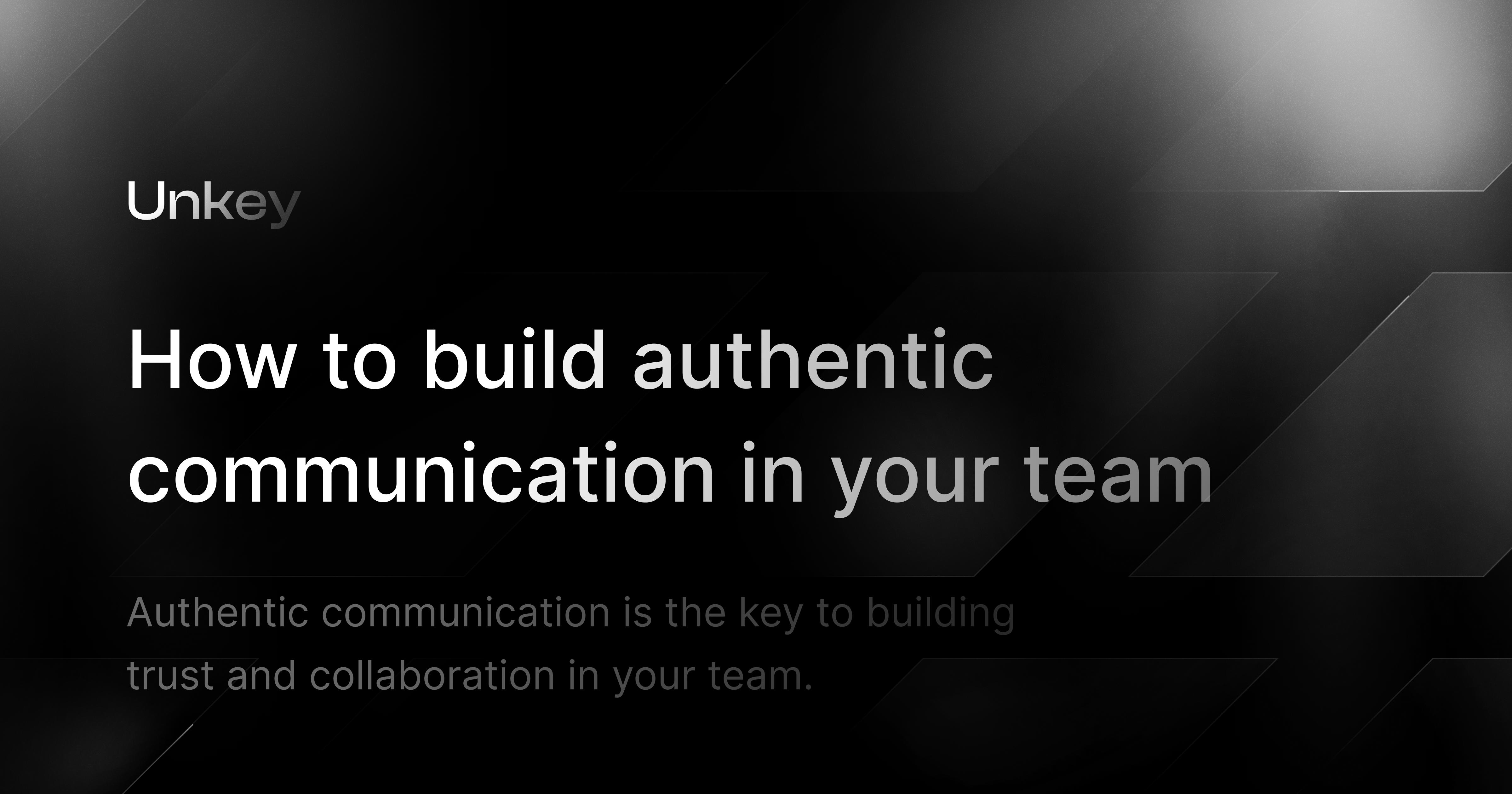How to build authentic communication in your team
 James Perkins
James Perkins
Before starting Unkey, I worked at several companies ranging in size from 5 to 5,000 employees, and one of the biggest hurdles a company can face is how to encourage authentic communication.
What is authentic communication?
Authentic communication has been covered many times over the years, but the idea has a few core concepts:
- Being able to communicate in the style that fits you
- Being able to be your genuine self regardless of the interaction you are having
- Being able to have a difficult conversation and not feel you are being dismissed
- Listening to other parties to understand their point of view
How do you build this into a team?
Building authentic communication into a team requires a lot of work and understanding, but it pays off in the long run for the health of the team and the company. Here are some steps that can help:
- Model the behavior: Leaders in the organization or team should lead by example when communicating with others. They should practice active listening, be open to feedback, and show empathy.
- Create a safe environment: The team should feel safe to express their thoughts and feelings without fear of judgment or retribution.
- Encourage feedback: Regular feedback sessions help team members feel heard and valued. It can also provide opportunities to address any issues or misunderstandings. It also is a great place to come up with new ideas.
- Celebrate diversity: Each team member brings a unique perspective and communication style. Celebrating these differences can encourage more authentic communication.
While all of these may seem obvious when the team is smaller, ensuring everyone has an equal opportunity to share their thoughts becomes harder when the team grows.
How are we attempting this at Unkey?
Unkey lives on being open from the top; Andreas and I ensure everyone understands how Unkey runs, what we expect, and the company's direction. So, for our team to feel empowered to be their authentic self when communicating, we do the following:
- Updates: Every update we send out to investors and customers is public and can be accessed by the team; I intentionally send a Slack message every month in the general channel. These updates include our current status for KPIs, the money we have spent, the money we have left, usage, and paying customers.
- Open communication: We communicate in the general channel using threads to keep things tidy, whether it is an idea, direction, or potentially something we are concerned about. This allows the team to provide their feedback, concerns, or excitement.
- Meetings are for everyone: Unkey only runs two meetings as a team; one is planning every Monday, and the other is demo every other Friday. These meetings are open forums and flexible; the team can provide their thoughts about what is up next for us and things they want to work on and provide input on ideas they might have. After anything is demoed, we open the floor for discussions surrounding the feature; we can talk about the code behind it and changes that might improve it, knowing that feedback is welcomed. We also ensure everyone gets time on the floor so no one is left out.
- Open door policies: Andreas and I have an open door policy, albeit more of an open Slack policy, which could lead to a meeting. Our team can come to us with concerns, problems they are facing, feedback, and ideas at any point and communicate them to us however they want.
- Dedicated space: Andreas meets with the developers twice a month, and I meet with them once a month. This time is for them and not for us. They can come with technical questions, business questions, vision questions, or to chat about how they are feeling.
I understand that our current implementation won’t scale past 20 or 30 team members; we will tweak this to allow for authenticated communication as we keep this a core value at Unkey.
Subscribe to my newsletter
Read articles from James Perkins directly inside your inbox. Subscribe to the newsletter, and don't miss out.
Written by
